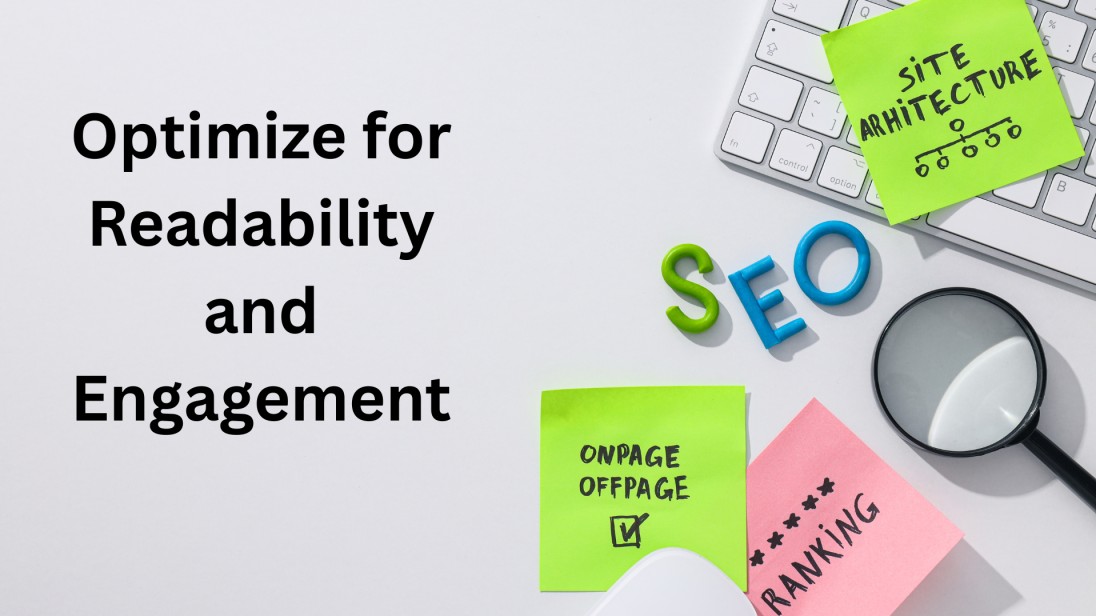Does content generated by AI tools boost website rankings, or does it negatively affect search engine optimization?
Faster and cheaper content production happens through AI tools that businesses utilize for their operations. There exists a major question about whether AI-written content helps or hurts search engine rankings. For a broader perspective on this topic, you might explore the question Is AI-Generated Content Good for SEO? to understand both the potential and the pitfalls.
✔️ It saves time.
✔️ It’s budget-friendly.
❌ But does Google trust it?
Automated content makes many individuals concerned that it will impact SEO outcomes or trigger search engine penalties.
The piece explains how AI content affects SEO, together with its usage boundaries and strategic implementation guidelines.
Knowledge of AI roles in content generation will allow you to lead digital marketing efforts.
Let’s dive in! 🚀
Table of Contents
- Can AI-Generated Content Hurt Search Rankings?
- How AI Affects Content Performance
- The Limitations of AI-Generated Content for SEO
- 5 Tips for Using AI-Generated Content Wisely
- Conclusion
Can AI-Generated Content Hurt Search Rankings?

The search algorithms of engines put content quality combined with user-focused writing at the top of their ranking structures. The quantity of text that AI-generated content creates rapidly becomes its main strength, but it delivers substandard intensity alongside unoriginal substance that weakens genuine user engagement. The technology used by Google for algorithm evaluation now focuses primarily on E-A-T factors such as Experience, Expertise, Authoritativeness and Trustworthiness.
A poorly done AI-generated article can damagingly affect your website's search rankings and reduce its visibility online. Search engines possess mechanisms which automatically detect poor-quality and repetitive content alongside irrelevant information to apply penalties. Strong SEO performance requires that AI-made content provides value and matches search queries to maintain its visibility. Using AI SEO services can help create high-quality, optimized content that improves search rankings.
Why AI Content Might Lower Your Ranking
- Lack of Originality – AI tools draw from existing content, which brings doubt to the authenticity of original work.
- Poor Readability and Flow – The problems with unintelligible text structure and poor flow appear in AI-generated content that suffers from these issues.
- Inconsistent Factual Accuracy – Computing machines lack real-life experiences, resulting in untrustworthy information detection.
- Overuse of Keywords – AI-driven SEO techniques might lead to keyword overuse because these techniques often produce keyword stuffing yet Google considers it a violation.
- Absence of User Intent Understanding – AI systems do not consistently identify subtle meanings in user inquiries, which results in content that is not pertinent to users' needs.
AI-generated content displays negative ranking consequences when it does not provide enough value or fails to obtain enough engagement or possess sufficient depth since Google classifies this content as low-quality.
How AI Affects Content Performance

The implementation of AI for content creation provides various benefits yet ensures what specific effects it produces for actual content performance. Let’s break it down.
The performance and marketing of content generated by AI rely on various factors, although AI speeds up production processes and boosts search engine optimization. A successful content performance outcome requires companies to establish the correct relationship between AI support functions and human editorial oversight.
The Benefits of AI-Generated Content
- Speed and Scalability – AI technology produces large quantities of text within minutes because of its high speed and scalability.
- SEO Optimization – The integration of SEO recommendations by SEO tools online helps writers place keywords correctly and generate metadata.
- Cost Efficiency – Operations costs are reduced because businesses need fewer content teams under this approach.
- Personalized Content – The software uses audience behaviour and preferences to adjust content specifically for each individual.
The Downsides of AI Content for Performance

- Low Engagement Rates – The interaction levels between readers and content decrease when AI creates articles that fail to establish emotional connection points.
- Inability to Adapt to Trends – The system depends on historical data which means it does not address emergent business trends.
- Potential for Plagiarism – The use of AI tools for content rephrasing creates risks of duplicate content because they repeatedly reuse existing information.
- Lack of Depth – AI-generated content lacks depth which produces content that provides limited deep insights along with special perspectives so it stays at a basic level.
The Limitations of AI-Generated Content for SEO

Although AI content continues to grow in popularity, marketers need to understand the major SEO restrictions that this approach presents.
AI textual production speed is fast but the resulting material lacks both valuable practical knowledge and academic authoritativeness. The process demonstrates problems with inventiveness and comprehension of intricate user demands and creative thinking. AI-produced content becomes inefficient when used in sectors needing specialized knowledge along with expert-level writing abilities.
1. Google’s Guidelines on AI Content
The search giant Google states that AI content does not represent a problem as long as it maintains quality standards. The Google algorithm provides better search results for content created with AI assistance when it shows high value and efficient optimization yet penalizes low-quality content created by AI. The continuous algorithm updates by search engines require businesses to follow best practices because AI spam detection has become more sophisticated.
2. AI Cannot Replace Human Expertise
The writing abilities of Artificial Intelligence remain lacking because machines lack the direct experiences, creative capacities and personal perceptual elements that human authors contribute to their work. The lower quality of AI-generated content inhibits the capability to build trust and attain authority in readers. The process of producing excellent content benefits from having human writers contribute their exclusive perspectives and expertise combined with storytelling art.
3. AI Struggles with Context and Nuance
Artificial text processing difficulties lead to wrong contextual interpretations, which produce inaccurate results and unrelated content details. The insufficient comprehension of AI systems regarding cultural references combined with industrial terminology along with humorous elements generates content that feels artificial to its intended human audience.
4. SEO Optimization Challenges

Although AI tools identify themselves as SEO-friendly solutions they exhibit two problematic features which limit their ability to create natural content that both searches and readers can understand. AI-generated content faces two main SEO difficulties because it tends to use subpar linking among documents contains abrupt changes and overuses keywords.Before publishing AI-generated content, it’s also important to confirm that key pages aren’t accidentally blocked from search engines, using a noindex checker helps ensure valuable AI-assisted content is actually eligible to rank in Google.
5. Ethical and Copyright Issues

AI technology extracts information across multiple sources, which creates difficulties regarding content authorship and safeguards against plagiarism and ethical matters. Organizations employing AI-based content generation need to monitor legal pitfalls while correctly attributing information to maintain ethical compliance.
5 Tips for Using AI-Generated Content Wisely

The following best practices will help users benefit from AI content generation without falling into SEO trouble:
The most suitable method involves AI assistance for content creation instead of complete automation. The optimal mixture of AI efficiency combined with human expertise supports better search results and user interactions. The specified approaches enable companies to achieve the best AI capabilities through top-quality content delivery.
1. Use AI as an Assistant, Not a Replacement
AI delivers its best results through partnerships with human scientists. The computer system should assist with outlines or initial drafts, and then a human author must finalize the content for personalization. The function of AI systems should assist human creativity instead of substituting human writers. For a practical example of how to integrate AI tools into your content workflow, check out this AI content generation and SEO strategy tool.
2. Prioritize Quality Over Quantity
You should not generate AI content on a large scale to increase quantity alone. The creation of valuable content based on research must meet user needs and deliver meaningful information to the audience. High-quality single content will always exceed thirteen standard AI-produced low-quality pieces.
3. Optimize for Readability and Engagement

The programming within the AI model generates text that may lack natural human rhythm patterns. The content needs a final editing touch to achieve better flow, clarity, and engagement. You can also humanize AI text to make it read more naturally and resonate with your audience. The story, along with concrete examples, should be added to make it easy for readers to relate to the content. Better SEO success depends on content that both readers and search engines find easy to understand while remaining highly engaging to the audience.
4. Fact-check and Edit Rigorously
Human review needs to be present for every AI-generated content that goes to publication. Human editors should fact-check the content and rectify technical mistakes before validating that it matches your organizational writing style. Your industry authority depends on maintaining credibility and trustworthiness between your audience and your business.Also, they should use a reliable plagiarism checker AI to ensure the content’s originality and detect any signs of automated writing before final approval.
5. Stay Updated with SEO and Google Guidelines

The search engine landscape continues to transform because search platforms routinely modify their guidelines about texts produced using Artificial Intelligence. Strategy success requires staying updated about best practices for alignment purposes. The knowledge of how Google updates its algorithms will help you stay away from penalties while enhancing your rankings.
Conclusion
AI-generated content creates both positive and negative impacts within the SEO environment. The speed and flexibility of AI content generation along with search engine optimization benefits create problems in content quality and originality as well as possible search performance deterioration.
AI content creation should be combined with human creative elements to succeed in your SEO strategy. Soft, engaging content of high value ensures your pages stay effective in search results. AI implements best practices to develop into a valuable content marketing solution instead of a source of risk.








